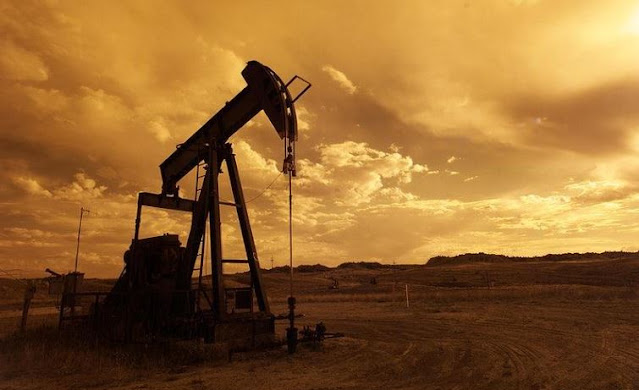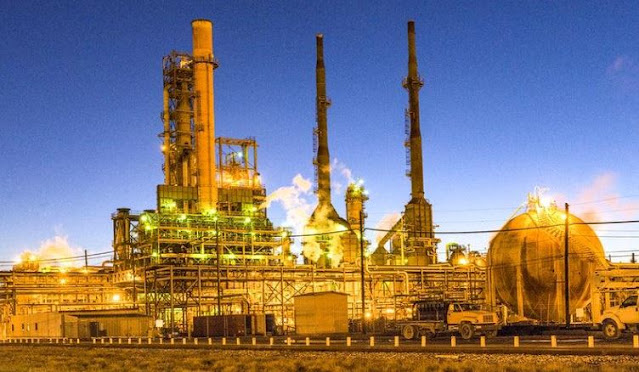Oil Industry And The Environment: Ways To Make It Greener And Less Harmful

When thinking about the industries which are detrimental to our planet, the oil industry is definitely the first one to come to mind. Sustainability and oil don’t seem to go hand in hand, however, this is simply untrue. Moreover, many oil companies are trying to make their practices green and more sustainable. It’s extra important to appreciate even the small eco-friendly steps taken by the industry giants especially since the oil industry is one of the bigger pollutants. Here are some ways in which the oil industry is becoming less harmful to the environment.
Reducing The Amount Of Water Used
Water is essential for the oil industry. It's utilized to keep the fracking drills cool. Freshwater is also used in the element separation process to remove the oil from the soil and rocks. Hundreds of millions of gallons of freshwater are consumed every day by the industry and to protect the planet, it’s crucial to reduce the amount of water used. Many fracking operations use recycled water nowadays which is truly commendable. Despite this fact, it is still critical to rethink the extraction process and further cut down on freshwater consumption. Current research in the field focuses on ways to reuse water and also on developing better industry standards.
Avoiding Gas And Fluid Leaks
Methane is one of the pollutants emitted by the oil industry and is highly dangerous to the environment. Conscious companies are doing their best to minimize their methane gas emissions by employing the best equipment and professionals in the field. Furthermore, drilling can often lead to gas and fluid leaks; therefore, it is crucial to figure out how to prevent them. Fortunately, new fracking methods have resulted in improved waste management as well as leak reductions. A rising number of oil corporations are implementing closed-loop technologies to keep their environmental effects under control. Aside from that, using high-quality oilfield equipment may assist in reducing the number of leaks on the fracking site.
Investing In Sustainable Energy Sources
Oil companies have noticed that renewable energy is becoming a hugely popular and profitable business. Though their primary motivation is long-term profit, their money is needed for the development of all renewable energy sources. As a result, the oil conglomerates that want to stay relevant in the future are heavily investing in renewable energy, especially solar power. Solar is the fastest-growing area of renewable energy. Furthermore, there’s growing hope that solar will become the primary source of energy in our homes. Many people are turning to solar even now by installing panels on their roofs, all thanks to oil companies’ investments and research.
Reducing Their Paper Use
Similar to most businesses, the oil industry relies on mountains and mountains of paperwork and red tape. Thankfully, in the last twenty years, there has been a great push to go paperless since keeping all the data on paper has become less favored compared to the use of the cloud. In this way, the industry doesn’t contribute to forest destruction. Computerizing administration practices also makes the employees more productive and the industry as a whole more efficient.
Using New Fracking Methods
Optimizing fracking methods is one of the ways how the oil industry has reduced the negative environmental impact it has. A couple of decades ago, in order to extract oil, the drills had to go extremely deep into the ground. Nowadays, the holes are much smaller and they are significantly less deep. Top engineers have devised methods that are more efficient and also make less waste in the process. One of the most widespread newer methods is to drill horizontally instead of vertically which causes less destruction to the surface.
Data Collection
According to some assessments, oil corporations are only operating at 77% of their full capability. This indicates that, through additional data collection and proper strategizing, energy consumption can be lowered even more. Furthermore, they may be able to reduce methane emissions and focus on becoming a zero-waste industry. There’s another optimistic implication on data collection. Having more knowledge will help prevent mishaps on oil operations and create a risk-free environment for those operating the rigs.
O&G ESG Conclusion
To sum up, the oil industry is not as dark as it seems. Every day, top experts in the field are making advances that will ensure the industry is more green in the long run.

